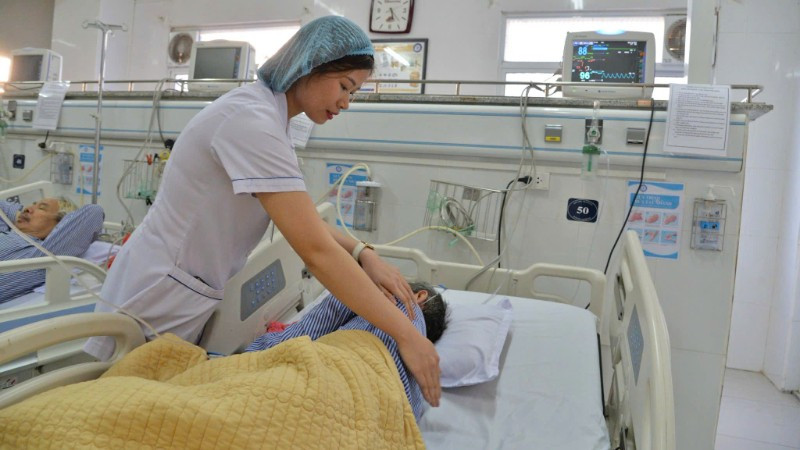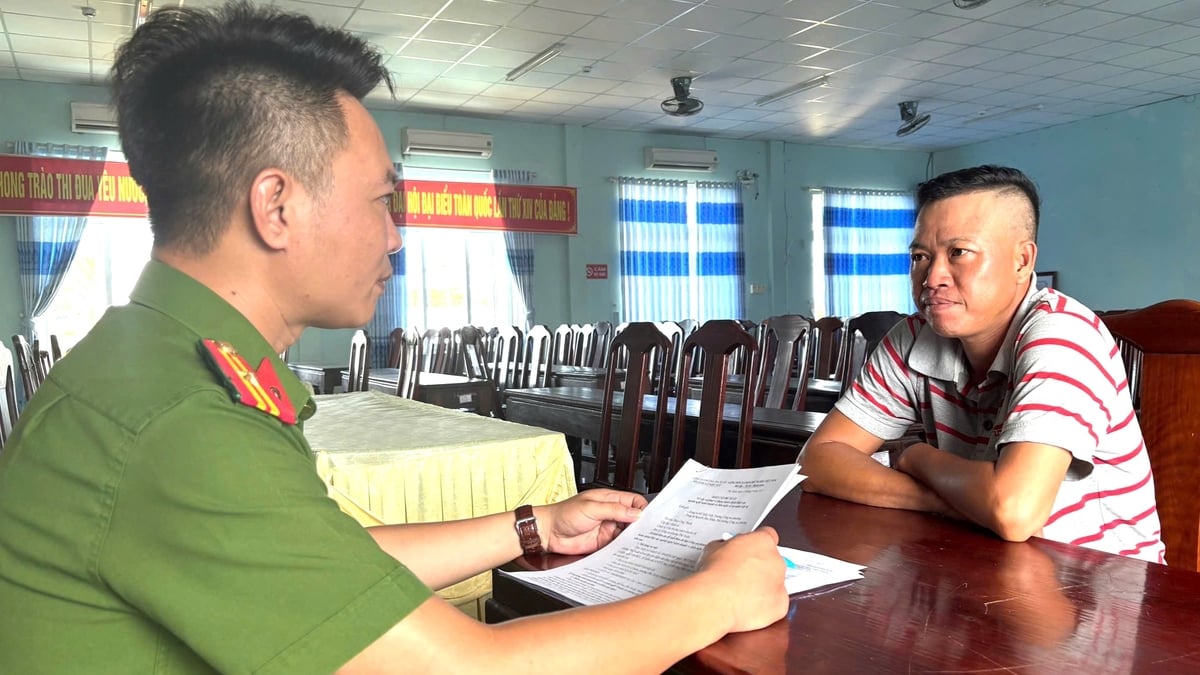
The Central Endocrinology Hospital has just admitted an 82-year-old male patient who was in a state of exhaustion, high fever, abnormally fast heart rate and an ulcer in the right femoral trochanter. Initial assessment showed that the patient was at very high risk of developing sepsis - a dangerous complication that can be life-threatening if not treated promptly.
According to the patient's family, he had a history of type 2 diabetes for more than 20 years, a stroke 3 years ago that left him paralyzed on the left side of his body, and after the stroke he was completely dependent and had to stay in bed for a long time.
About a week before admission, the patient began to feel tired, had a poor appetite, and gradually lost consciousness. Upon admission, the patient was tired, had slow consciousness, and needed oxygen support to improve. Clinical examination showed signs of pneumonia, accompanied by a 4cm ulcer in the right thigh with pus and surrounding swelling and redness.
According to Master, Doctor Pham Thi Ngoan, Department of Intensive Care, Central Endocrinology Hospital: “For patients with long-term diabetes who have suffered from a stroke with paralysis, lying in bed for a long time significantly increases the risk of pneumonia and the formation of pressure ulcers - which are common starting points for sepsis. The initial injuries may be very small and easily overlooked, but if not properly cared for, bacteria can enter the blood circulation, causing widespread inflammation throughout the body.”
This patient was treated aggressively from the outset with broad-spectrum antibiotics, glycemic control with insulin, ulcer care, and continuous monitoring of vital signs, inflammation, and consciousness.
After the initial treatment, the patient had initial improvement in perception, fever reduction and hemodynamic stability, but still needed close monitoring by the medical team of the Intensive Care Department, Central Endocrinology Hospital.
Dr. Pham Thi Ngoan emphasized that caring for a diabetic patient with hemiplegia requires special attention to blood sugar control, adequate nutrition, passive exercise, and care for areas of skin that are prone to pressure, such as the shoulders, hips, and heels. Symptoms such as prolonged fever, rapid breathing, fatigue, altered consciousness, or increased heart rate can all be early signs of infection and should be treated promptly.
“People with diabetes, stroke or the elderly need to have their health monitored regularly at specialized medical facilities. As soon as unusual signs appear, no matter how small, they should not be subjective,” Dr. Ngoan advised.
Source: https://nhandan.vn/nguy-co-nhiem-khuon-huyet-o-benh-nhan-dai-thao-duong-sau-tai-bien-post900940.html



![[Photo] Firmly marching under the military flag: Ready for the big festival](https://vphoto.vietnam.vn/thumb/1200x675/vietnam/resource/IMAGE/2025/8/15/86df2fb3199343e0b16b178d53f841ec)




















![[Photo] The special solidarity relationship between Vietnam and Cuba](https://vphoto.vietnam.vn/thumb/1200x675/vietnam/resource/IMAGE/2025/8/15/5f06c789ab1647c384ccb78b222ad18e)


![[Photo] General Secretary To Lam attends the inauguration ceremony of the "Uncle Ho in Tan Trao" Monument](https://vphoto.vietnam.vn/thumb/1200x675/vietnam/resource/IMAGE/2025/8/14/679bb11e3ce14b2aabc31a9c8676d269)

![[Photo] Binh Khanh Bridge Ho Chi Minh City is ready to reach the finish line](https://vphoto.vietnam.vn/thumb/1200x675/vietnam/resource/IMAGE/2025/8/14/b0dcfb8ba9374bd9bc29f26e6814cee2)


































































Comment (0)